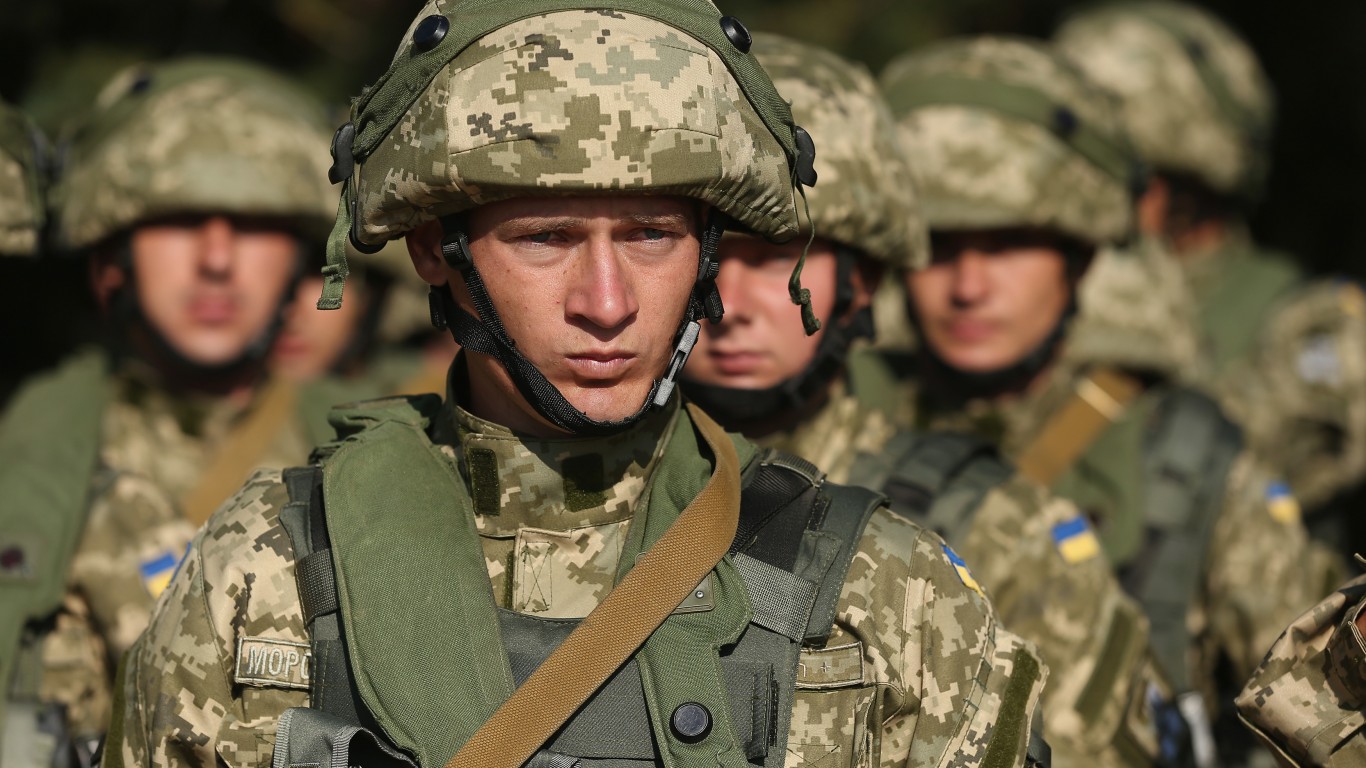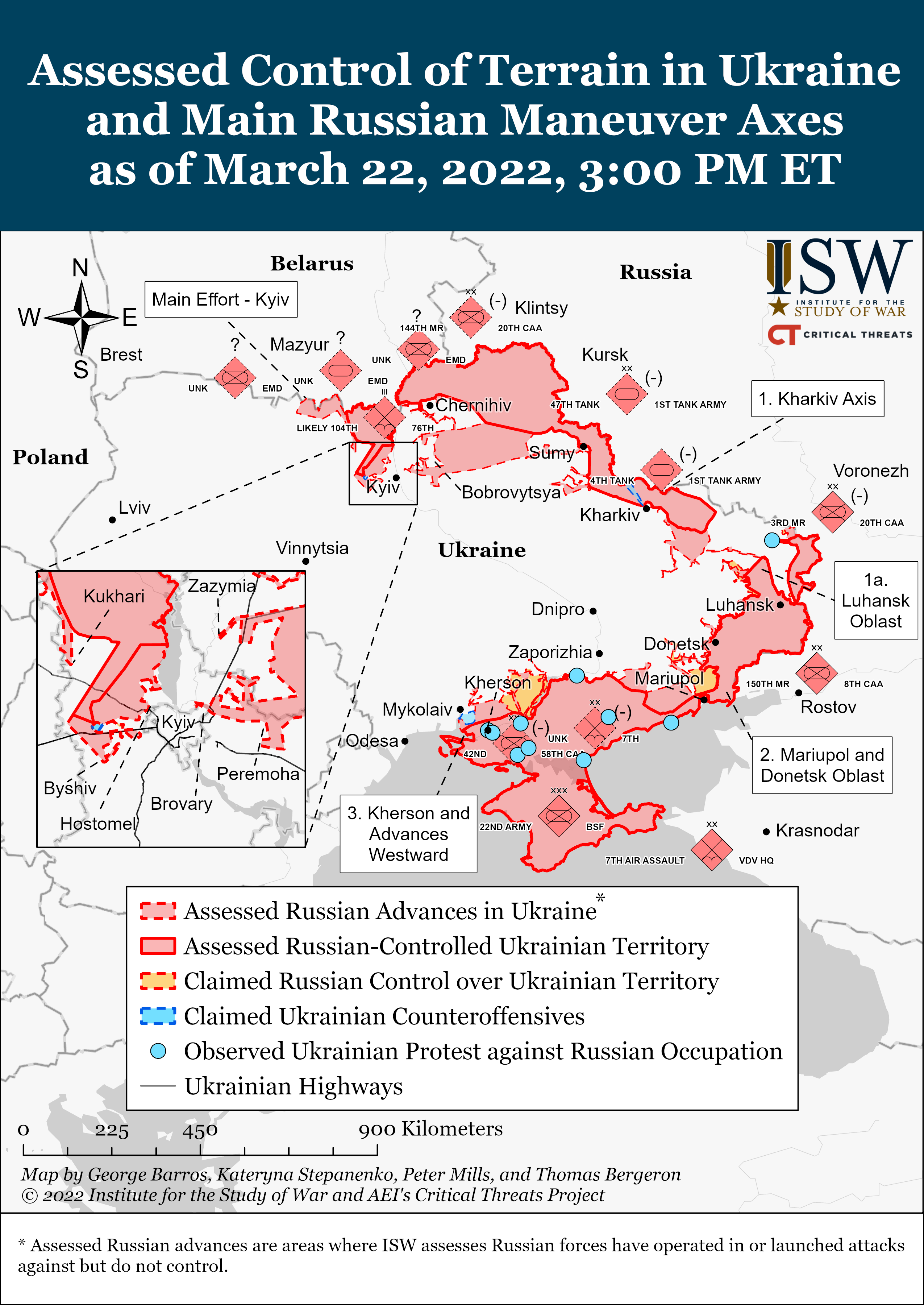Investing
Wednesday's Top 5 Stories From Putin's War in Ukraine

Published:
Last Updated:

President Biden travels to Brussels Wednesday for a meeting with NATO leaders. The U.S. president is expected to announce more sanctions Thursday after meeting with EU, NATO and G7 leaders. National Security Adviser Jake Sullivan said Tuesday that Biden’s announcement will introduce a “new phase” in efforts to isolate Russia.
[in-text-ad]
According to the Washington Post, Sullivan said that the new sanctions “will include ‘a joint effort to crack down on evasion — on sanction-busting, on any attempt by any country to help Russia basically undermine, weaken or get around the sanctions.'”
Germany has resisted a ban on fossil fuel imports from Russia, claiming that such a move would lead to an economic crisis in western Europe. Chancellor Olaf Scholz said, “To do that from one day to the next would mean plunging our country and the whole of Europe into a recession. Hundreds of thousands of jobs would be at risk. Entire branches of industry are on the brink. Sanctions must not hit European states harder than Russian leadership.”
Russia has reduced the capacity on a 1.4 million barrel per day oil pipeline, citing storm damage that could take up to two months to repair. The Caspian Pipeline Consortium’s capacity could be reduced by 1 million barrels a day until the repairs are completed. The pipeline transports crude oil from the Tengiz field in Kazakhstan to the Russian Black Sea port of Novorossiysk.
The following map from Chevron shows a planned expansion from 2015 that increased capacity by 670,000 barrels a day. Both Chevron and Exxon Mobil use the pipeline. According to a report in the Financial Times, the Caspian Pipeline was exempted from a ban on Russian oil imports into the United States, provided that the oil flowing through the pipeline was “certified as coming from Kazakhstan.”

Sanctions are giving Russian corporations difficulty in making coupon payments on corporate debt, according to a Reuters report. Companies tied to Russian oligarchs who have been sanctioned may have trouble completing transactions to make their payments. The report cited data from J.P. Morgan that “Russian corporates have nearly $100 billion of hard currency bonds outstanding, more than twice the $40 billion the Russian sovereign owes on international bond markets.” More than half the corporate issues were executed by state-run firms and most of that went to fossil fuel companies.
Start by taking a quick retirement quiz from SmartAsset that will match you with up to 3 financial advisors that serve your area and beyond in 5 minutes, or less.
Each advisor has been vetted by SmartAsset and is held to a fiduciary standard to act in your best interests.
Here’s how it works:
1. Answer SmartAsset advisor match quiz
2. Review your pre-screened matches at your leisure. Check out the advisors’ profiles.
3. Speak with advisors at no cost to you. Have an introductory call on the phone or introduction in person and choose whom to work with in the future
Get started right here.
Thank you for reading! Have some feedback for us?
Contact the 24/7 Wall St. editorial team.